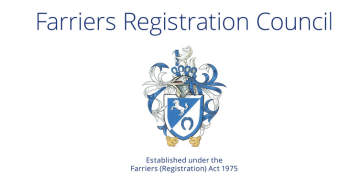More than half of colleges have reported an increase in students coming into college hungry since September, a new survey has found.
Student mental health, funding, staff pay and rising energy bills have also topped ongoing concerns with more than nine in ten college respondents citing those fears too.
The Department for Education published data on Thursday morning from November’s School and College Panel survey – a regular online check-in with school and college leaders and staff on a range of topics.
The November survey responses featured answers from 35 college leaders and 93 members of staff from colleges.
Here are the key findings.
Hungry students
More than half of colleges – 56 per cent – said the number of students arriving hungry at college had increased since the start of the academic year in September, while 28 per cent report it had stayed the same and 6 per cent saying it had gone down.
Within that, more than four in five had reported that they had seen a rise in students struggling to get to college (84 per cent) and missing lessons or attending less frequently to do part time work (81 per cent) as a result of the cost-of-living crisis.
More than half reported increases in students not being able to pay for trips, not buying all the books or equipment needed for their course and applying for Free School Meals.
On upcoming challenges colleges will face as a result of the rising cost of living, colleges were most likely to report mental health concerns among students and parents (97 per cent), a lack of funding for the college (94 per cent), pay freezes or inadequate pay for staff, and increased energy bills (both 91 per cent).
More than three quarters also reported mental health concerns for staff, staff leaving the profession and increased food poverty among students as worries.
Sexual harassment/abuse on the rise
Around a third of colleges (34 per cent) said they had seen an increase in the number of reports of sexual harassment or abuse in the last 12 months, with 50 per cent saying there had been no change.
In June 2021, Ofsted conducted a review of sexual abuse in schools and colleges, which found the prevalence of sexual harassment and online sexual abuse for young people was “widespread”, and tasked schools and colleges with a number of measures. Those included routine record-keeping of sexual harassment and violence to identify patterns of abuse and intervene early, and provide training for staff to spot the signs quickly.
The survey found 89 per cent of college leaders and 67 per cent of tutors were aware of the review. Nine in ten colleges had changed their policies as a result of the review, with a further 3 per cent planning to make changes.
Almost all – 95 per cent – reported they were confident in knowing what to say to a student reporting sexual abuse or harassment.
Post-16 SEND barriers
Three quarters of colleges said they felt they could effectively support students aged 16-to-25 who have special educational needs or disabilities (SEND).
However, 84 per cent of colleges felt that they currently faced barriers to providing effective support for those students.
The most common barrier reported was a lack of access to specialist services or professionals, while 55 per cent of college teachers felt they do not have enough time to provide additional support for SEND learners.
In addition, three quarters of colleges felt they could effectively support SEND leaners in their transition to work or higher education but 88 per cent said there were barriers to doing so.
A lack of suitable destinations and access to suitable specialist support were citied as the top reasons for that.
















Fieldwork ended in July 2022. Report titled November 2022.
DfE published report late February 2023.
Spring Budget 15 March 2023.
It seems reasonable to question why there was a 3-4 month gap between the report being finished and it being published. If it was a pre-agreed timetable, what was the rationale for the gap?